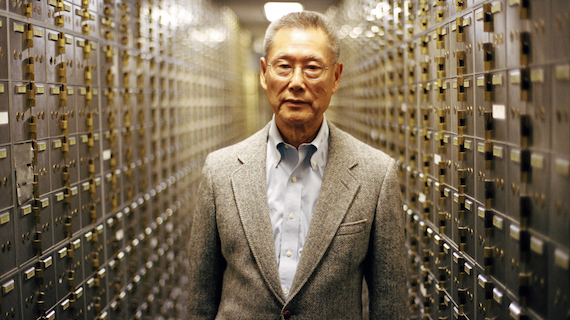
Despite pressures to plead guilty, Thomas Sung fights back – along with his daughters, most of whom also work at the bank. Just as riveting as the legal case is the depiction of the close-knit Sung family: loving, argumentative, funny, and warm, they fight and laugh and strategize and remind each other to eat. Throughout the trial, they find themselves defending not only their innocence, but also the delicate balance between Western legal dealings and the cultural practices of Chinatown – a community that relies heavily on relationships and cash-only businesses without much of a paper trail. Throughout the film, James likens Thomas Sung to Jimmy Stewart’s character in “It’s a Wonderful Life,” a pillar of the community who uses his position at the bank to help his neighbors prosper and thrive. And ultimately, the Sungs’ painstaking work is rewarded: after a lengthy jury deliberation, Abacus Bank is found not guilty. Yet they remain the only bank to have been indicted for mortgage fraud following the economic collapse of 2008.
In the Q&A following the film, Stranger Than Fiction host Thom Powers spoke with Vera, Jill, and Chantarelle Sung about the process of making the film during one of the most difficult portions of their lives. When asked about what concerned them most about the prospect of filming, Chantarelle discussed her worries about being camera-shy or that the filming would distract from the task at hand. Those fears turned out to be unfounded, as she described the ease she felt during the process. “When Steve sat down with me, it was just incredible,” she said, “because it was the first time that any of us had spoken to an outside party about what we were going through. And so when he interviewed me, I just felt like he was such a down-to-earth, nice person – I just opened up.” As far the long-term effects of the trial, all three sisters spoke about how it reinforced their beliefs that one must stick together and organize to fight injustice. Chantarelle spoke emotionally about the lasting effects of the ordeal. “My parents, being immigrants, have always believed in the American dream and the system,” she said. “And then something like this happens, and you walk away feeling like no good deed goes unpunished. So you become a little cynical. But I think it’s very important not to let that cynicism get in the way of you trying to improve and contribute to the public good. I think this experience has empowered our family even more to do that.”
Videography by Joseph Schroeder, who has managed the production of highly acclaimed educational and informational programming for networks such as PBS, A&E and National Geographic for over a decade. Currently the Vice President of Production and Operations of The Independent Production Fund. Follow him on Twitter and see more of his work on his website.
Related Film






